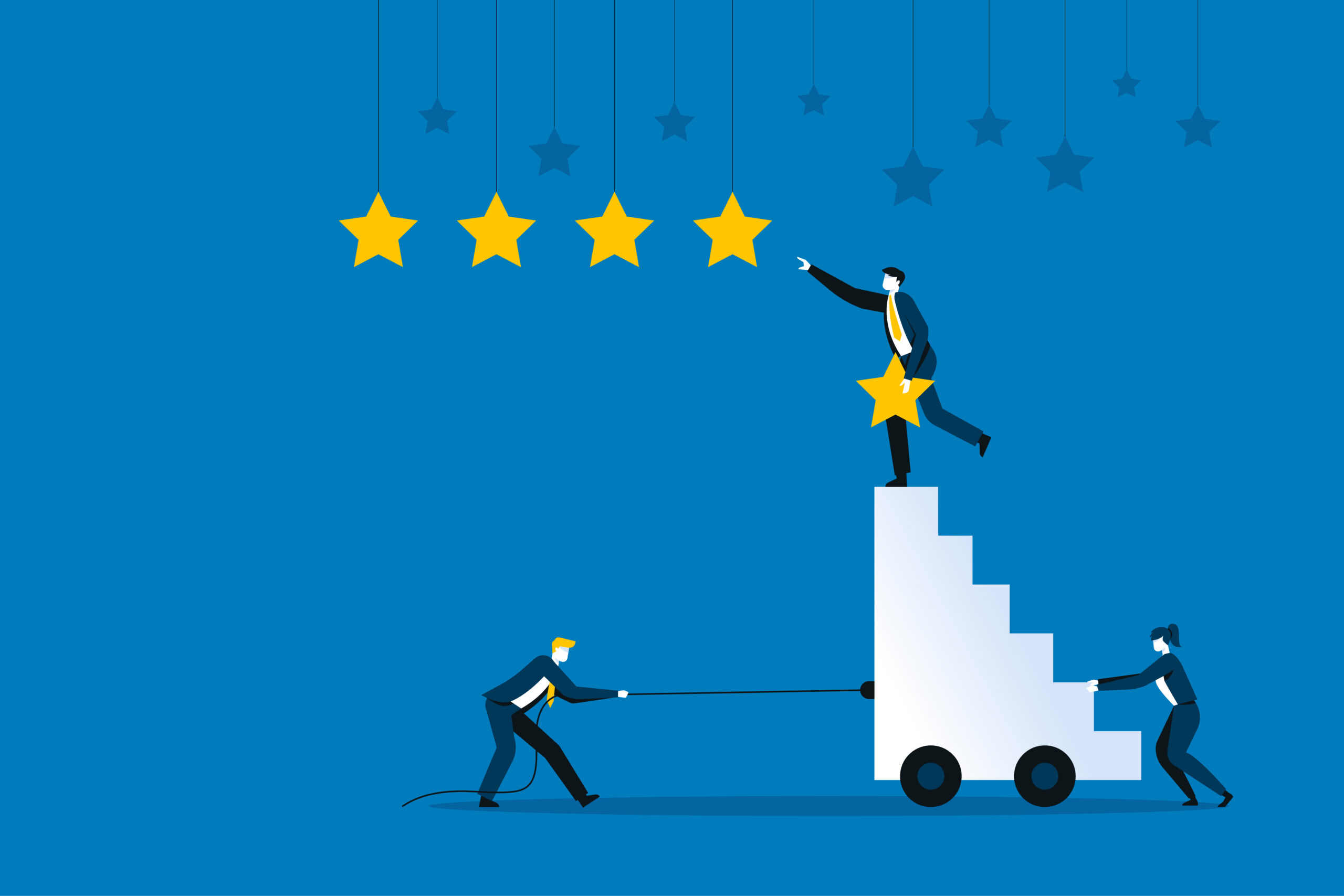Every organization, regardless of its size or sector, depends on its business reputation to establish trust and attract stakeholders.
A strong reputation not only influences customer decisions but also shapes partnerships, employee loyalty, and investor confidence. Yet, businesses often underestimate how fragile this reputation can be. Missteps in communication, service delivery, or online engagement can lead to a damaged image that takes years to repair. Understanding how business reputation impacts credibility is essential to maintaining a favorable brand identity in an increasingly transparent marketplace.
Many companies seek ways to strengthen their standing but fail to recognize the avoidable mistakes that undermine their credibility. This blog explores the most common errors businesses make when managing their reputation and how to prevent them. From neglecting online reviews to inconsistent communication, we’ll uncover the habits that tarnish credibility. By the end, you’ll understand how proactive reputation management through Aiplex ORM can protect and enhance your company’s business reputation effectively.
Things to Know Before Managing Your Business Reputation
Before improving or protecting your reputation, it’s crucial to understand the key factors that influence public perception. Business reputation is not built overnight—it’s shaped by every interaction, review, and response your organization makes. Companies that view reputation management as a one-time activity often fail to sustain long-term credibility. Instead, businesses need ongoing monitoring, transparent communication, and consistent values to build trust with their audiences.
Moreover, the internet amplifies both success and failure. Negative news, customer complaints, or misinformation can spread rapidly across multiple platforms, influencing thousands of potential customers. This is where professional reputation management services like Aiplex ORM become invaluable. They help identify emerging threats early and deploy corrective measures before minor issues evolve into crises.
1. Understanding Online Reputation Management
Online reputation management (ORM) plays a central role in maintaining your business image. It involves tracking and influencing how your brand is perceived across search engines, social media, and review sites. Many businesses ignore ORM until a crisis occurs, but proactive monitoring prevents damage before it escalates.
Through ORM, you can address negative feedback swiftly and promote positive content that reflects your values. Partnering with experts like Aiplex ORM ensures your digital footprint aligns with your core message, reinforcing trust and transparency among stakeholders.
2. Importance of Brand Consistency
Brand consistency strengthens recognition and trust. When messaging, visuals, or tone fluctuate, audiences become confused or skeptical. Consistency across platforms—from website copy to social media—reinforces professionalism and reliability.
Aiplex ORM emphasizes consistent branding as part of its comprehensive reputation management strategy. By ensuring alignment in every communication, businesses create a unified brand image that resonates positively with customers, media, and investors.
3. The Role of Transparency and Communication
Transparent communication builds credibility, even in difficult situations. Businesses that attempt to hide or downplay mistakes often face greater backlash. Acknowledging issues openly demonstrates accountability and strengthens relationships with audiences.
Aiplex ORM advises companies to adopt clear communication strategies that include timely updates, empathetic responses, and open dialogue. This approach helps restore confidence quickly when challenges arise.
4. Influence of Customer Experience
Customer experience directly impacts business reputation. Each interaction—from purchase to after-sales support—contributes to how people perceive your company. A single poor experience can lead to negative reviews that influence countless potential buyers.
By prioritizing customer satisfaction and actively gathering feedback, businesses show commitment to improvement. Aiplex ORM assists clients in developing customer engagement frameworks that transform feedback into opportunities for growth and loyalty.
5. Significance of Social Media Monitoring
Social media is both a platform for engagement and a potential source of reputation risks. Ignoring social mentions or negative comments can quickly escalate issues. Regular monitoring allows brands to detect sentiment shifts and respond effectively.
Aiplex ORM integrates advanced tools to monitor social platforms, analyze trends, and identify emerging concerns. Their proactive interventions ensure that brand perception remains positive across digital spaces.
Common Business Reputation Mistakes to Avoid
Maintaining a strong reputation requires more than good intentions. Many organizations inadvertently damage their image through poor decision-making or negligence. Below are key mistakes businesses must avoid to protect their reputation.
1. Ignoring Negative Feedback
Ignoring negative feedback is one of the fastest ways to erode trust. When customers voice concerns, they expect acknowledgment and resolution. Silence signals disregard, prompting further dissatisfaction and public criticism.
Businesses that address feedback promptly not only retain customers but also demonstrate professionalism. Aiplex ORM helps companies implement systems for immediate response and constructive communication, turning criticism into a chance for improvement.
2. Overpromising and Underdelivering
Setting unrealistic expectations can backfire severely. When businesses fail to deliver what they promise, it leads to disappointment and skepticism. Maintaining credibility requires realistic commitments that align with your capabilities.
Aiplex ORM emphasizes authenticity and value-based communication in its reputation strategies. Delivering consistent quality reinforces reliability and helps prevent reputational backlash.
3. Lack of Employee Advocacy
Employees are brand ambassadors who influence external perceptions. Disengaged or dissatisfied employees can harm your image through negative word-of-mouth or online comments.
Encouraging employee engagement and aligning internal culture with external messaging ensures cohesive reputation management. Aiplex ORM assists organizations in building positive internal communication strategies that support public reputation goals.
4. Neglecting Online Presence
A weak or outdated online presence signals irrelevance. Consumers often research brands before engaging, and an inactive or inconsistent profile raises doubts about credibility.
Through Aiplex ORM’s digital optimization services, businesses can maintain an active, authentic online footprint. This includes regular updates, SEO alignment, and content that reflects core values.
5. Mishandling Public Relations Crises
How a company reacts during a crisis can define its long-term reputation. Panic-driven or defensive responses often worsen the situation, while calm, transparent communication restores confidence.
Aiplex ORM offers structured crisis management support, ensuring prompt and strategic actions that minimize damage. Their experts guide businesses through media responses, public statements, and stakeholder communication with professionalism.
6. Inconsistent Corporate Values
When business practices don’t align with stated values, stakeholders lose faith. Authenticity is key—companies must embody the ethics they promote.
Aiplex ORM helps brands assess internal alignment and refine messaging to ensure values are genuinely reflected. This consistency fosters credibility and emotional connection with audiences.
7. Failing to Monitor Competitors
Ignoring competitors can blindside your business to industry trends or emerging threats. Competitor reputation management provides insight into market positioning and potential opportunities.
Aiplex ORM’s analytics-driven ORM tools monitor competitive benchmarks, helping businesses stay informed and adapt strategies effectively. This proactive approach safeguards against reputational gaps in comparison to peers.
8. Not Responding to Online Reviews
Online reviews hold significant power over consumer trust. Ignoring them—positive or negative—creates a perception of indifference.
Acknowledging every review shows attentiveness and respect for customer opinions. Aiplex ORM streamlines review management, ensuring timely, thoughtful responses that enhance satisfaction and loyalty.
9. Poor Data Privacy Practices
Data breaches or misuse can severely damage business reputation and lead to legal consequences. Consumers expect transparency and robust security measures to protect their information.
Aiplex ORM supports organizations in developing data protection frameworks that comply with global standards. Demonstrating responsibility in data handling reinforces trust and credibility.
10. Delayed Crisis Response
Timing is everything in reputation management. Delays in addressing issues allow misinformation to spread unchecked.
With Aiplex ORM’s 24/7 monitoring and rapid-response solutions, businesses can act before damage becomes irreversible. This proactive vigilance helps maintain brand integrity even in challenging scenarios.
Why Choose Aiplex ORM for Business Reputation Management
Aiplex ORM specializes in safeguarding corporate reputations through intelligent digital solutions. Their team of experts provides end-to-end reputation management, from monitoring and crisis handling to positive content promotion. By leveraging AI-powered analytics and strategic communication, Aiplex ORM ensures your business reputation remains resilient and respected.
Moreover, Aiplex ORM customizes its approach based on industry type, audience behavior, and brand values. Whether it’s mitigating negative publicity or enhancing visibility, their solutions deliver measurable improvements. Partnering with Aiplex ORM guarantees continuous oversight of your reputation, ensuring it evolves positively with your business growth.
Conclusion
Business reputation is a valuable asset that requires consistent care and strategic management. Avoiding common pitfalls such as ignoring feedback, mishandling crises, or neglecting transparency is essential to maintaining trust and loyalty. Reputation management is not merely a defensive measure but a proactive commitment to long-term success.
With expert support from Aiplex ORM, companies can strengthen their reputation, mitigate risks, and build enduring credibility. By taking preventive measures today, businesses can secure a future defined by trust, respect, and positive recognition.







